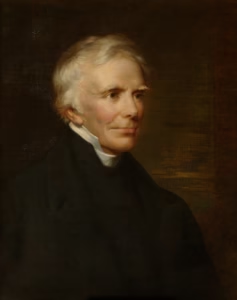Music for July
Sunday 20th 10.30am Holy Communion
Setting
Girdlestone – Missa in Tempore Alligatum
Hymn
3, 387, 403, 595
Motet
Parce Domine (Obrecht)
Sunday 27th 10.30am Holy Communion
Setting
Stanford
Hymn
357, 809, 692, 650
Motet
Jesu, joy of man’s desiring (Bach)rt)
Music Matters
John Keble 1792-1866 - by Errol Girdlestone

On the fourteenth of July we celebrate the Lesser Festival of John Keble – priest, Tractarian and poet. It was on that day in 1833 that Keble preached his assize sermon National Apostasy in the University Church of St. Mary in Oxford, which in its turn gave rise to the Oxford Movement.
I am only speaking from the point of view of a musician – having myself studied at Keble College, Oxford, and during my final Schools year acted as organist at the neighbouring Pusey House. As a consequence, I can but duly acknowledge the considerable influence of the Oxford Movement, stretching as in does well beyond the confines of the Church.
Elgar’s magnificent oratorio The Dream of Gerontius perfectly reflects the philosophy of Cardinal Henry Newman, himself a founder member of the Oxford Movement, who wrote the poem upon which the oratorio is based. In his turn, Elgar was profoundly influenced by the music of Richard Wagner, something which is clearly audible during the Prelude to Gerontius, with its inextricable connection to the latter’s final opera, Parsifal.
Just to complete the picture, at John Keble’s funeral a group of his friends and supporters, including a certain Dr. Pusey, decided to found an Oxford college in his memory – you can imagine its name – and in its turn, Pusey House was opened in 1884 as a memorial to Pusey himself.
